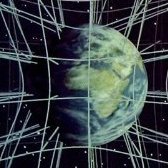Leaderboard
Popular Content
Showing content with the highest reputation on 06/03/20 in all areas
-
In the absence of any science, I'm left to focus on the constant mention of other forums and other discussions and other people. I find it profoundly uninteresting, since the science behind your idea is the topic of this thread. Sorry, but screw Phil. We don't know Phil, he's not a member, he's not part of this conversation. You need to stop trying to massage your audience before the actual discussion takes place. We're only interested in the science. If you want anyone to discuss this with you, the idea should be sound enough on its own without you having to "sell" it. Please don't let this go to multiple pages without actually presenting your concept.3 points
-
And your point is? Are you saying that "everyone" does not include black people!? Are you saying that therefore black lives don't matter?? Did you miss that large graphic summarising the research that a disproportionate number of black men are murdered by the police. Almost as if their lives don't matter? If you are really struggling with comprehending this then maybe stick "as well" or "just as much" on the end of black lives matter. Let's be absolutely blunt, if someone responds to Black Live Matter with "but all lives matter" (or with "but" followed by anything else) then their racism is part of the problem.2 points
-
This is not to suggest that the death of an Asian or Caucasian from police abuse isn't equally egregious, it's just that the distinction of George Floyd's horrifying murder comes after several recent murders and over a century of similar well publicized murders among America's black citizens at the hands of police or similar authorities whose sworn job is to protect and serve those very same citizen. Chauvin's demeanor and expression while compressing Mr. Floyd's neck amid his desperate pleas to breath suggest that Chauvin was well aware of what he was doing. What we saw in that horrible moment in America's recent history was a very public lynching albeit by knee rather than rope.1 point
-
Answer to joigus: Yes, I have, and just like there will be Boltzmann brains (which don't live long) after a long enough time, there will be Boltzmann galaxies (which can sustain life for a long time) after an even longer enough time. In fact, it is almost certain (probability = 1) that this will happen endlessly often afaik. Right; I should have said that you had shown good reasons why my idea may well be wrong. I thought that I had written "likely", but apparently I was wrong. But if the Universe were a closed system with an endless past and an endless future, the structures which gave rise to them (solar nebulas? galaxies?) would be Poincaré recurrences, I think. However, 👍 Answer to studiot: Yes, I think so. I think that I misinterpreted your argument and analogy. My new interpretation is as follows: The one-to-one correspondence between the boards stands for partitional isomorphy, whereas the different laws of chess and checkers stand for the additional structure on the set Mi of microstates, e.g. the neighborhood-relation in the simple LED-system above. Many partitions which are partition-isomorphic to the thermo-partition aren't isomorphic to it in the stronger sense, which also takes the additional structure into account. For example, in the LED-system, the brightness-partition is strongly isomorphic to the brightness'-partition, but not to the merely partitionally isomorphic brighthood-partition. If that is what you mean, I fully agree with you. Regarding the units of entropy and the Boltzmann constant, I still cannot see how one quantity which is a constant multiple of another can obey different laws than it. Also, you can actually set the Boltzmann constant equal to 1, and in fact, the Planck unit system equates universal constants like the Boltzmann constant with 1 or a numeric multiple thereof. But I now think that you meant something else, namely that the existence of units indicates that there is more structure on Mi than just the sethood of Mi. If that's what you meant, I agree. Do you only mean that they have the same partitional structure (number of macrostates, number of microstates in each macrostate), th.i. are partitionally isomorphic? If yes, then that's in accordance with my interpretation of you above. However, if you mean that they are isomorphic in the strong sense, th.i. have the same number of microstates, the same corresponding microstate-transitions, and the same probabilities of corresponding transitions, then that contradicts my above interpretation, and I cannot follow you. For an informational system which has exactly the same microstate structure as the physical world (transition-correspondence, same probabilities, and all), the states of that info-system which correspond to the emergent and complex states of the physical world are the informatioal emergent phenomena you're looking for. So long as the differences are or result in structural (th.i. substantial) differences, you can indeed not equate the two things in question. However, if the two things have exactly the same structure, then you can regard them as essentially the same (though not selfsame, of course). For example, the set of all even positive whole numbers together with the x -> x+2 function has exactly the same structure as the set of all positive whole numbers with the x -> x+1 function. Therefore, it's meaningless to ask which of the two are the "true" natural numbers. Perhaps with quantum info theory? But as long as the quantum effects, e.g. the anomalously high ionisation energies, do not result in structural and informational differences, I don't really have to explain them. It's like with Turing machines; we don't have to care for what details (e.g. number of symbols used) distinguish one universal Turing machine from another. As long as they've been shown to be UTMs, that's the only thing we have to care about since they can perfectly simulate each other. Now I have, and I might look into the topic. With that, you've brought a really interesting problem to my attention. I guess that what you want to say is that entropy alone doesn't give us enough info to solve it; we need additional details about the physical world. Is that right? If so, then this shows that these details have a bearing on the informational structure of our world. When I started this thread, I originally wanted to bring up the following issue, but decided it to be too far off-topic, but apparently not so. The issue is this: Actually, it doesn't really make sense to assign probabilities to states. It only makes sense to assign probabilities to state transitions or talk about conditional probabilities (which is basically the same, I think, though perhaps a bit broader). Therefore, since entropy assumes that states have likelihood, it might not grasp all the informational structure of the system. Perhaps, the piston problem shows that there is more to the informational structure of the physical world than state-probabilities. Anyway, the piston-problem has led me to this very interesting article: https://arxiv.org/ftp/physics/papers/0207/0207073.pdf Indeed. I hope that hasn't taken so much time and made so much entropy that is has hastened the coming of the heat death 🥵.1 point
-
Plus the boy mozzies are innocent. More seriously, we don't know all their ecological functions is another reason.1 point
-
There's been recent success with curing the mosquitoes so they don't infect people with malaria, rather than trying to prevent people catching it. I would hope this moves the various species from the lethal category into the nuisance category, where eradication isn't an option.1 point
-
They fall “down” due to a principle called the principle of extremal ageing. This principle, in simple terms, implies that geodesics in spacetime tend to be the longest (in geometric terms) they can be, given all initial and boundary conditions. Since in an environment such as planet Earth the length of a free-fall geodesic is generally dominated by the time-term within the metric, this implies that such geodesics will tend to be oriented towards regions with higher time dilation, relative to some reference point far away. In other words - closer to the central body. This is why the apple falls down, rather than up - because this is what maximises the geometric length of its world line, given its initial and boundary conditions. It’s important to bear in mind the bit I have highlighted in the end, because initial and boundary conditions do of course play a role in this - for example, if you were to throw the apple upwards with enough acceleration, it might escape to infinity, rather than fall down, because given those initial conditions, that’s the longest possible world line for it. It’s also important to remember that our intuition of what constitutes “long” is once again considerably different from the maths - the purely spatial distance from tree to ground appears very short to us, whereas in fact its geometric length in spacetime is considerable; that’s because in the metric, the time part carries a factor of \(c^2\), which often makes it greater than the spatial part by some orders of magnitude. Mathematically, geodesics are solutions to a set of partial differential equations, hence initial/boundary conditions determine the form of the solution just as much as the equation itself. The equation is, in fact, just the principle of extremal ageing written in mathematical form.1 point
-
Simply, any forcing that removes a choice, reduces the degrees of freedom. forcings that remove all choice save one, are reducing degrees of freedom to one. The only choice available is that specific one. So how exactly, are you free to choose ?? Its like a Russian election; you can vote for anyone you want, but V Putin is the only name on the ballot. So how do you have free will ?1 point
-
GR reduces to Newtonian gravity in the weak field limit, and that’s attractive, so...yes.1 point
-
Exactly! Have you heard of Boltzmann brains? Well, I haven't shown you that your idea is wrong. I haven't shown you much, AAMOF. I've argued to you, I think, it's not plausible if you take it seriously to make a model of what a gas in a box is going to actually do. I've argued from general concepts derived from what I know. But there are qualifications to be made in cosmology. I would have to think about them deep and hard, or maybe have some expert in cosmology tell us what they think. The universe is not a boring place most of the time we are given to watch it because, in the case of the Earth, it's governed by fluxes of energy, coming in, and going out. Open systems like those are not Poincaré recurrences. They are the kind of systems that can hold something like life. There are very interesting models of systems which undergo self-organization under those conditions. But the universe is not like a closed box which thermalizes after some time. And I don't think the universe as a whole satisfies Poincaré recurrences. That's what I meant when I said, So if you don't like a universe that will thermally die, who knows, maybe that's not gonna happen and you (or some version of you in some far far away future or in some far far away cluster of the multiverse, is having that expectation fulfilled. Does that help? Maybe the universe repeats itself geometrically, by some periodicity condition. There may be many possibilities. They're going on. For example, some of the molecules I'm breathing now will be gasped by the last breathing creature that will live on Earth, and others were inhaled by the 1st breathing creature that lived on Earth. But I'm none the wiser. Yet, if the temperature goes up one degree, I will notice. Nice conversation.1 point
-
I may be going slightly off-topic here, but I like to chime in that while the historic elements are clearly directed against black folks in the US system, the undercurrent is not too different how most countries deal with immigrants. I have always been annoyed how folks, say in Germany, claim to have no systemic racism (or bigotry or whatever floats your boat) problem. But the the truth is that different folks experience the same society in different ways almost everywhere. This is obviously not only along racial lines, gender socioeconomic status etc. are also such elements. However, race (and gender) has always been a visible element at the intersection of these issues. Immigrants always had to work harder and make less mistakes and maybe (but only maybe) they might be seen as something approaching equals. This is something that many folks learn, and it makes sense when they arrive in a new country, but kids in the third or fourth generation get fed up with it. African Americans (and obviously indigenous folks) have been there since the beginning. And it must be way more frustrating to be part of the country for so long and still held at arms-length and still being being scrutinized and blamed for each misstep (which others are allowed to make). Some folks essentially summarized it as a breach of the social contract and ask the question why folks should adhere to it, if they are not accepted to be a full part of it. Edit: I should add that in the US the overall much higher lethality of the police force exacerbates all the underlying issues, whereas a more peaceful society would continue to simmer at a less dramatic level. Edit2: Another thing to add is that especially black communities are hit way harder by COVID-19 than white communities. Economically, health-wise and educationally. The whole situation has highlighted massive disparities.1 point
-
The problem is that you can't assume that all those that riot are there "for the cause". Protests, no matter how peaceful those who organize them intend them to be often attract those who are only there to cause trouble and want to use the peaceful protesters as cover. Then there can be people from the other side of the issue that show up just to stir up trouble; The hope being that by doing so, they can get people to focus on that rather than the issue. There was a post above about looting of a store in Portland. But there was also a very peaceful protest here a day or so later*. Which do you think made the news? It's a bit of a Catch 22, Peaceful protests attract no attention, while violent ones attract the wrong attention. *As an example of one of the points I made above, there were also reports of a group of "Proud Boys" that were planning to march to meet the protesters. Since I never heard of any problems, I assume that the two groups were kept apart.1 point
-
1 point
-
Congratulations, you have found a far better diagram. +1 And yes we usually ignore the effect on the Earth and just consider the effect on the body, be it book, table or ball.1 point
-
Here I think you're being persuaded by a subtle misconception. When entropy has reached a maximum, the system has undergone total thermalization and nothing statistical depends on time. Things keep changing, but only microscopically. All the physical parameters are fixed at their average value. Any changes will manifest themselves in second order effects or fluctuations. If temperature is high, the system will be very efficient at erasing these deviations from equilibrium very quickly. Some months ago, I developed a picture meant to illustrate these concepts, only for educational purposes, and inspired by some musings due to physicist Tony Zee, that temperature is some kind of inverse relaxation time for the system, or proportional to it. It probably overlaps with formalism that other people have developed, because in physics it's very difficult to come up with anything that's really original and new. So in your initial OP, there is already a problem, and I should have detected it right away had I been cleverer. Namely: Will entropy be low much of the time? There is no time in entropy. Entropy kills time. That's its job description. I have a perception that we're faced with entropy at the surface of a black hole, because something is killing time there too! But those are just speculations. Although I very much like your post. Those are very intelligent questions. +1 I hope that helps.1 point
-
I'l try: The upward normal force from the table and the downward force due to gravity are two different forces acting on the same object. Action/reaction pair is the same force seen from two points of view. In the above case action/reaction could be seen as two separate action/reaction pairs: 1: Gravitational interaction Book-Earth and Earth-book 2: The books force pushing down on the table and the tables push on the book If everything is at rest then the forces will balance so numerical values of force due to gravity (1) and normal force (2) are same. Now try a case where 1 and 2 are not balaning each other: Accelerate the table upwards (for instance in an accelerating elevator). Then the normal force would change but gravity remains the same. (1) is still action/reaction pair and (2) is still action/reaction pair but (1) and (2) does not balance out.1 point













